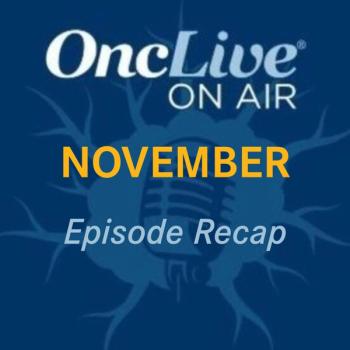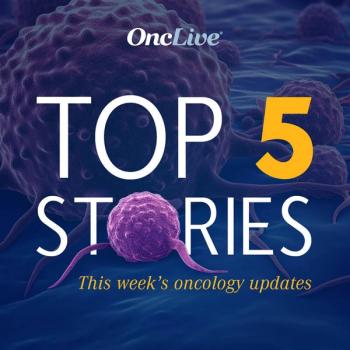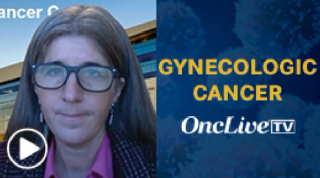
Ovarian Cancer
Latest News

Olaparib Elicits Improved OS Rates in Platinum-Sensitive, Germline/Somatic BRCA+ Relapsed Ovarian Cancer
Latest Videos

CME Content
More News

Senaparib has received marketing authorization in China as a first-line maintenance therapy for advanced ovarian cancer.

The FDA has granted priority review to the NDA for avutometinib plus defactinib in KRAS-mutant recurrent low-grade serous ovarian cancer.

Adding dostarlimab to chemotherapy and niraparib maintenance improved progression-free survival in first-line advanced ovarian cancer.

Lunresertib plus camonsertib demonstrated efficacy and safety in heavily pretreated endometrial cancer and platinum-resistant ovarian cancer.

After an additional 7 months of follow-up, IMNN-001 plus chemotherapy produced a 13-month increase in median OS in advanced ovarian cancer

Luveltamab tazevibulin produced responses in patients with platinum-resistant ovarian cancer.

Pembrolizumab plus chemotherapy, followed by olaparib with or without bevacizumab, improved PFS in advanced ovarian cancer.

Premal Thaker, MD, MS, highlights data seen with the IL-12 Immunotherapy IMNN-001 in the OVATION-2 trial and next steps with the agent in ovarian cancer.

In case you missed any, read a recap of every episode of OncLive On Air that aired in November 2024.

Premal Thaker, MD, MS, discusses considerations when targeting IL-12 in ovarian cancer and how IMNN-001 has shown the potential to do so.

Whitney Goldsberry, MD, discusses patient characteristics and disease factors that sway the decision between available PARP inhibitors in ovarian cancer.

The European Commission has approved mirvetuximab soravtansine for select patients with pretreated FRα-positive, platinum-resistant ovarian cancer.

New datopotamab deruxtecan BLA in NSCLC filed to FDA, radiopharmaceutical meets rPFS end point in PSMA+ prostate cancer, and more.

Sacituzumab tirumotecan monotherapy demonstrated antitumor activity with a manageable safety profile in previously treated endometrial and ovarian cancers.

NXP800 generated antitumor activity as monotherapy in platinum-resistant ovarian cancer harboring ARID1a mutations.

Kathleen N. Moore, MD, MS, discusses the evolving treatment landscape of platinum-resistant ovarian cancer.

The Nectin-4/CD137 Bicycle–targeted immune cell agonist BT7480 had antitumor activity in patients with Nectin-4– and CD137-expressing tumors.

SHR-A1921 showcased early efficacy with a manageable safety profile in patients with platinum-resistant ovarian cancer.

A rolling NDA seeking the approval of avutometinib plus defactinib in recurrent KRAS-mutant low-grade serous ovarian cancer has been submitted to the FDA.

Laura J. Chambers, DO, discusses the roles of niraparib and olaparib in ovarian cancer and the importance of patient communication throughout treatment.

For more first-hand insights, head over to our YouTube channel to watch Dr Markman discuss the inner workings of oncology: https://rb.gy/bvumdn.

Laura J. Chambers, DO, discusses the importance of treatment counseling for patients with ovarian cancer considering PARP inhibitor therapy.

Zolbetuximab wins approval for CLDN18.2-positive gastric/GEJ cancer, TTFields joins the NSCLC armamentarium, and more of this week's top news in oncology.

Updated RAMP 201 data will support an NDA submission to the FDA for avutometinib plus defactinib in recurrent low-grade serous ovarian cancer.

Domenica Lorusso, MD, PhD, discusses the selective glucocorticoid receptor modulator relacorilant plus nab-paclitaxel in platinum-resistant ovarian cancer.













































